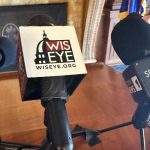Prosser wins; Kloppenburg has to make a decision
After a lengthy recount, Justice David Prosser has been declared the winner of the 2011 Spring Supreme Court election. It’s finally over.
Or is it?
The statewide recount of the April 5 election results was completed late last week, when Waukesha County reported its final tallies. The Wisconsin Government Accountability Board Chair Judge Thomas Barland signed the official statewide canvass Monday morning, saying while the recount didn’t result in any significant changes, it still shined a light on Wisconsin’s election process.
Waukesha County caused most of the problems after County Clerk Kathy Nickolaus forgot to include the vote totals from the City of Brookfield in the election night reports she forwarded to the Associated Press, leading to challenger JoAnne Kloppenburg’s acceptance of a win with a 204 vote margin. When Nickolaus revealed the mistake two days after the election it immediately led to questions of voter fraud, clerical incompetence and GOP vote tampering.
Now, almost six weeks later, Prosser has been declared the winner with a 7,006 vote lead.
Prosser immediately released a comment on the certification saying he was grateful that the final results have been confirmed.
“I want to thank the literally hundreds of local election officials and volunteers across the state’s 72 counties who spent thousands of hours of their time in this recount,” he said. “Their dedication went well beyond their normal call of duty and I know that residents who they serve share my appreciation for their great efforts in producing an accurate final result.”
But the ball is still in Kloppenburg’s court, and she has two plays – accept the results of the statewide recount, or continue the process by filing a lawsuit to challenge the results. She has until May 31 to make her decision, although it is worth noting that no election that has been overturned has had such a large margin.
Kloppenburg has not said anything specific regarding her plans, but campaign manager Melissa Mulliken said the recount “uncovered numerous anomalies and irregularities. Vote tallies have changed in every county.”
She said the campaign will review the records and determine “based on the facts, the evidence and the law, whether to request judicial review.”
Throughout the recount process, Kloppenburg aides and volunteers have watched every vote be recounted, but nowhere as closely as they did in Waukesha County. Over 800 complaints were filed for poorly or improperly sealed ballot bags, voter intent questions and stray markings. The retired judge overseeing Waukesha’s recount had every challenge documented by a court reporter in the event of a legal challenge.
However, Judge Robert G. Mawdsley said the most common errors in Waukesha County were the failure of poll workers to reconcile the number of ballots cast with the number of voters who showed up. This can occur when two voters are assigned the same voter number, or if a vote number is skipped. He added that poll workers also made mistakes in documenting exchanged ballots after voters made a mistake in marking. In one Waukesha County ward, as many as 14 ballots were affected by this problem.
Most of these mistakes seem to call for better training of poll workers, many of whom are elderly volunteers.
So, will Kloppenburg go for the stall? By calling for a legal challenge to the results, there is the serious risk that Prosser would not be seated when the court begins its next session on Aug. 1. That in turn would lead to a possible 3-3 tie on any case brought before the court in connection with the budget. That tie will leave any Dane County Circuit and Appelate court rulings standing.
But the margin of victory for Prosser is too big and the mistakes found during the canvasses and recount are exactly why the state has these types of checks and balances in place. Eventually, she will have to call it quits. Will it be sooner or later?
























An egregious piece of bigotry crept into this story. While the number and nature of the mistakes uncovered might indeed suggest that poll workers need “better training,” that would be because they are volunteers. Not a bad point. But what you wrote was that the problem was that they are “elderly volunteers”–an uncalled-for slur.